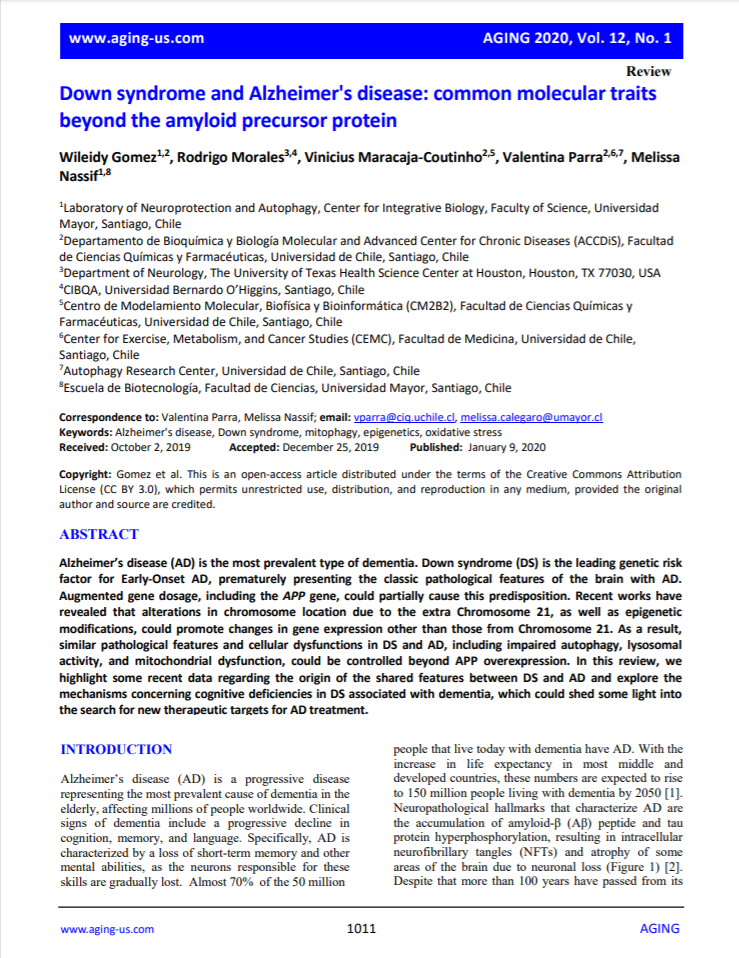Down syndrome and Alzheimer's disease: common molecular traits beyond the amyloid precursor protein

Fecha
2020Autor
Nassif, Melissa [Univ Mayor, Fac Sci, Ctr Integrat Biol, Lab Neuroprotect & Autophagy, Santiago, Chile]
Gómez, Wileidy [Univ Mayor, Fac Sci, Ctr Integrat Biol, Lab Neuroprotect & Autophagy, Santiago, Chile]
Morales, Rodrigo
Maracaja-Coutinho, Vinicius
Parra, Valentina
Ubicación geográfica
Notas
HERRAMIENTAS
Acceda a títulos restringidos
¿Cómo descargar?Resumen
Alzheimer's disease (AD) is the most prevalent type of dementia. Down syndrome (DS) is the leading genetic risk factor for Early-Onset AD, prematurely presenting the classic pathological features of the brain with AD. Augmented gene dosage, including the APP gene, could partially cause this predisposition. Recent works have revealed that alterations in chromosome location due to the extra Chromosome 21, as well as epigenetic modifications, could promote changes in gene expression other than those from Chromosome 21. As a result, similar pathological features and cellular dysfunctions in DS and AD, including impaired autophagy, lysosomal activity, and mitochondrial dysfunction, could be controlled beyond APP overexpression. In this review, we highlight some recent data regarding the origin of the shared features between DS and AD and explore the mechanisms concerning cognitive deficiencies in DS associated with dementia, which could shed some light into the search for new therapeutic targets for AD treatment.
Coleccion/es a la/s que pertenece:
Si usted es autor(a) de este documento y NO desea que su publicación tenga acceso público en este repositorio, por favor complete el formulario aquí.